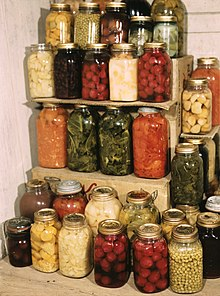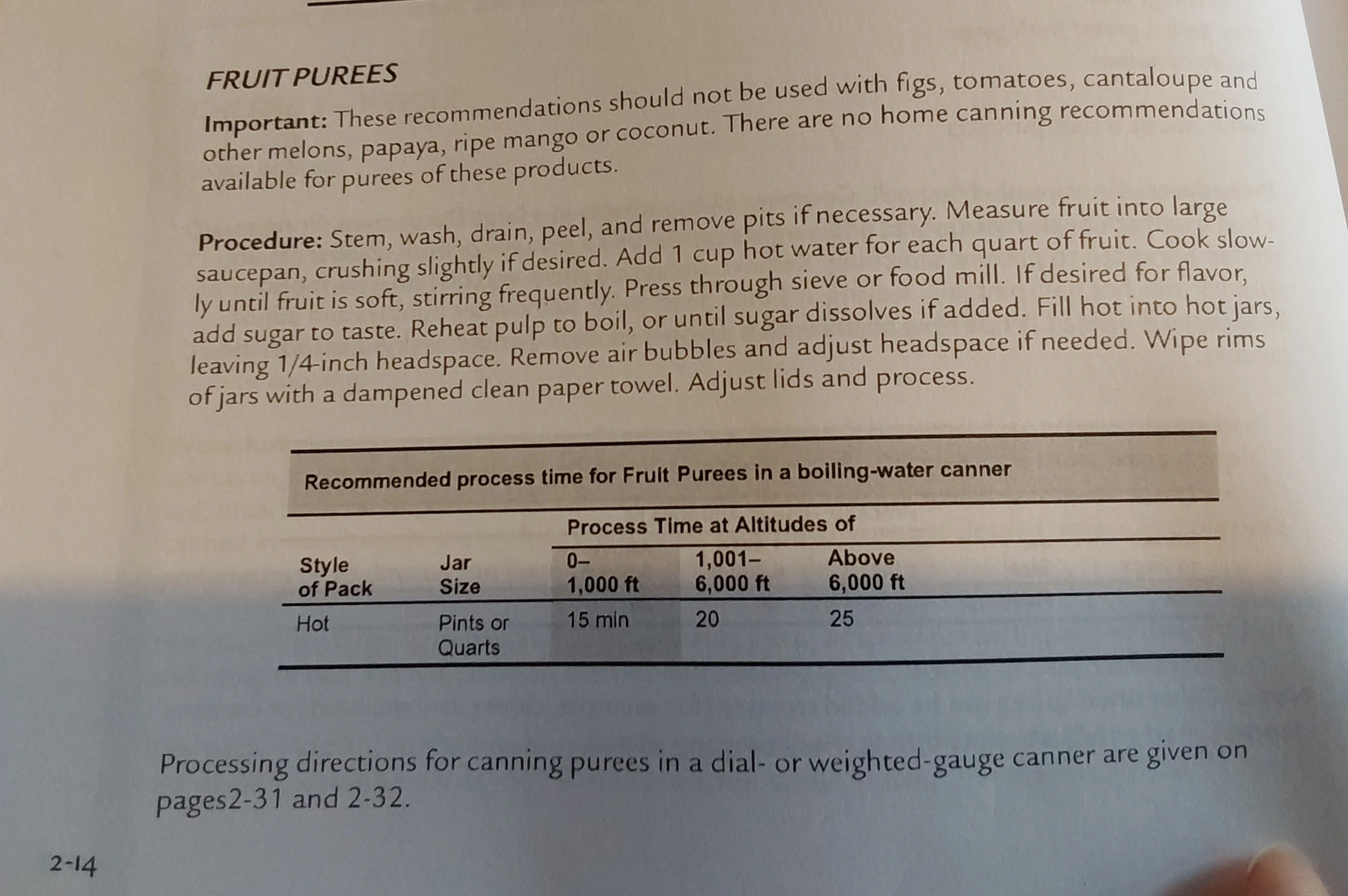

I vote we officially name the spinny thing the Spinny Wheel of Deletion.
Interested in sewing, gardening and preserving, with a strong focus on sustainability.


I vote we officially name the spinny thing the Spinny Wheel of Deletion.


“> insert Spinny erasor comment here>”


I’m not sure that “just” digging a trench and burying waste in a garden bed that you have conveniently lying around unused waiting for next year’s vegetables is either easy, or practical for most people with limited garden sizes.
The author tries to make it sound like some sort of free and easy method of just scattering waste without any rules, but in reality there are a lot of provisos. You have to have an area of ground you don’t need to use to be able to spread everything out so you are not creating one stinking pile. You have to have opportunities to collect all of the material, and although it is glossed over in the article the inclusion of the paper plates, napkins, shredded documents etc. would be vital to this working - the “ratios” that are sneered at as if they are some sort of arbitrary rule you can gleefully ignore are the difference between composting and rot (too much green material) or mulch (a layer of dry brown material). Covering the material with mulch is not just about making it look better because you are fussy, it actually allows the right conditions of moisture & darkness to allow the organisms to break down the waste, if you don’t do that you will mostly get dried up old food sitting on top of the ground.
Hot composting, where the goal is maximum nutrients as quickly as possible, can be a complicated process and presenting that as the standard method does put a lot of people off. But presenting the alternative as “there are no rules” is misleading and likely to lead to failure for a lot of people too. Understanding a bit about how composting works, especially that there does need to be a balance of materials to feed the soil organisms that are doing the work for you, will lead to a much greater ability to create a system that works for each individual’s circumstances.


Thank you. I definitely need to keep the work more centred - even without subtitles I was moving out of frame a bit on a few occassions. It’s unfortunate that the default subtitle locations don’t seem to be changeable, but if you are on a computer (not on mobile) you can drag them to a different position.


Mashed fruits are a puree. From the USDA canning guide (which I think is available free online):



If society valued my contribution they would give me working conditions that were decent enough that I didn’t desperately want to leave. “Society” is currently extracting way more than a fair share of what people like me (on an average wage) produce so that the rich can indulge in excessive consumption. I don’t know how you get the idea that everyone who plans to retire early has a valuable skilled profession and high social power. For a lot of people the focus is on extreme frugility to try to scrape enough money together to have some freedom to spend time doing things you find valuable.
Basically yes, I am of the mindset that I don’t owe anything to society. I’m “lucky” to have an average wage and not minimum wage I suppose, especially given that the current argument in society is that minimum wage is not supposed to be high enough to support yourself independently. “Society” has been telling me for years that my essential job that they are so grateful to me for doing is also a drain on “taxpayer money” and that I don’t deserve pay rises that keep pace with inflation, let alone average wages.


How different stoves work for you partly depends on what types of things you cook, but there are also a lot of variations in how crappy standard electric stoves are.
I’ve used old coil stoves that were not that bad, but my mother’s new glass topped thing was so awful I learnt not to even try cooking some dishes. If you needed to brown anything you had to put the pan on for a 10-15 minute preheat to get anywhere near hot enough, then if you needed to reduce the heat to simmer it was best to just move to another burner if you could because it would take 5+ minutes to cool down. The top heat was just enough to brown something if you left it a long time and did not crowd the pan, but doing something like searing a steak or making a stir-fry just wasn’t possible.
But then I’ve also used gas stoves that are hard to work with and don’t have much control over the temperature - even my current stove I tend to switch burners to accommodate different heat levels better. So I guess a lot comes down to having the right specific stove to meet your requirements, more than being just a gas vs. electric issue. Having previously believed I’d never want anything other than gas I have been pretty impressed by the portable induction cooker I’ve been trying out, and I’m sure a better quality model would suit me for pretty much everything.


Oh, of course. Poor people just need to get enough money to own property and build everything required to create an autonomous society.
You have a wildly different definition of poverty to me.


What you are proposing is that “poor people” should all band together and create a new separate society, which is basically communist. Like some sort of left-wing Sovereign Citizen movement.
One big problem with this concept is that you cannot create a new separate economics whilst living in wider society. You still need to live somewhere, and you will need to pay the landlord with money. You will need to pay the electricity bill with money. You will still need to use joint facilities like roads, and the State is not going to happily provide all that to you for free, they will be looking at your new little economy and working out exactly how to value it to send you a tax bill.
While you are dealing with all of these issues, you also have to deal with the people within the group. How are you running it and making sure it is fair? It takes a massive amount of work to manage something like this on even a small scale. So you will need some sort of tax on transactions so that the people putting the time in to running it can be covered. Who is actually going to join if everyone’s time is valued equally - it will be a great deal for people whose skills are not valued on wider society, but a bad one for anyone with more valuable skills. So you won’t end up with a wide skill set involved, and can’t cover the requirements to do everything needed. So for example if you found a farmer who wanted to provide all their produce through this scheme, you could not provide the resources they need to produce and transport the produce. There is a massive difference between “making food” (ie, working at McDonalds) and actually creating food.
Plus what happens when things go wrong? When the person you arranged to come over to help you with something falls and hurts themselves, or they do substandard work that damages your property? Is your mutual aid group providing some sort of insurance coverage? Do you have some sort of dispute resolution process to mediate problems?
Having a strong community that supports members and shares resources can definitely be a good thing, and help to improve the lives of everyone involved. But “quit your shitty job and create a mutual aid network” is not at all a viable path to prosperity (or even to survival).


You should be able to replace the valves with a weighted valve. Then you don’t need to worry about the dial gauge accuracy as it is regulated by the weight.


I use Excel. Apps generally seem to be focused on tracking spending, and are less useful for modeling future changes. If I want to look at my actual spending in more detail I can use the banks apps for that, the spreadsheet is more future focused.
I have been working on the spreadsheet for years with gradual improvements all the time, and it is exactly customised to my needs. So I can calculate my pay (which is variable and based on a ludicrously complicated structure), allocate the money based on a mix of set and percentage figures, model the impact of future changes such as increases in power costs or getting another pet, and estimate at any time how much I have accrued for utility bills not yet received.


I expect it varies depending on the store, but a place near me has things like remnants and ends of rolls, upholstery fabric sample books, offcuts of things like leather (the bits left around the edges after the pieces are cut out) and the ends of elastic and lace rolls that are too small for manufacturers to be bothered with but perfect for home use.


I have put together a video showing how I do my darning, the post is here if you are interested.


I’ve been thinking a lot about what makes for a good group since I moved to Lemmy. Small and engaged is what I came up with, and authentic is definitely part of that. A lot of people’s normal response is to look for the biggest group for everything, but I believe once a group passes a certain size it loses the ability to have good constructive discussions - at best you get a core group participating and a lot of people who just watch, but more often you lose the space for anything exept superficial conversations as everything that is not new gets lost in the volume.
It’s a pity Lemmy does not allow for subgroups, as that would be a good option for larger groups. The best options I have come up with so far are including weekly themed posts, and ongoing posts for specific topics linked from the sidebar so they can be kept visible. I think moderating a group well involves being part librarian, not just the rules enforcement most people focus on.


I agree completely with both those points.


It is less important that our hobbies are something that we are “not obliged to do” than that we are actively engaged in them.
Many people spend their free time in activities of passive consumption - watching TV, shopping and doing packaged, purchased “activities”. The only active component is searching for the next thing to consume.
An actively engaging hobby is very different, it involves growth and learning. Many hobbies can be engaged in either passively or actively - think of the difference between a photographer who goes out every weekend to take photos and improve their technique, compared to one who spends hours researching and purchasing equipment but rarely “finds” the time to actually take photos.
The real difference between them is the mindset, and that can be applied to things you are obliged to do as well. My hobbies tend to be extensions of things that are necessary - cooking, gardening, sewing. All can be approached as necessary chores, but an approach of active engagement turns them into hobbies. Even scrolling the internet can be turned into a hobby - although I’m not sure if moderating a group and trying to learn enough javascript to automate things will make me a better person or lead to madness at this point!
I guess my argument is that it is not doing things outside of what we are obliged to that is important, it is doing more than we are obliged to do. It does not matter whether that “more” is different things, or things we need to do done in a different way.
That was one thing that really struck me on my trips overseas (Peru & Vietnam). There was public space everyone could use to just sit, to meet up with friends etc. I spent a lot of time just sitting and watching how everyday life unfolded around me.
At home (Australia) there are very few public spaces you are allowed to stay in without paying. Even public parks tend to be built on the assumption people will mostly just pass through, there are not many places to sit (and most of the seats are for parents around playgrounds) We meet up in coffee shops and restaurants where we are expected to buy things to pay for the privledge. Instead of visiting in each other’s homes we go out and pay for meals and entertainment. If we do invite people to our house it is generally somewhat competitive - showing off how great our house is, how amazing the meal we provide is etc.
I do manage to carve out some space for myself, although much of it is wandering the neighbourhood with the dog rather than loitering in one spot. But it is almost impossible to do the same with others. The type of relationships that are formed from long lazy conversations doing nothing much have been surplanted by the superficial conections of shared activities. The focus is not on each other any more, it is on the activities done and meals eaten. I really yearn for a few deeper connections, but what I am finding is just expensive meetups to compare notes on what everyone else has watched and eaten.


I was worried about a lump too, but I was not able to feel anything. It might vary depending on where it is though - my socks wear in one spot at the end of the big toe.
I think it is worth doing a netting stitch, and I have found it easier to do than straight once I worked it out. The wear spots happen where the sock is stretched, so I think that reducing the amount of stretch in that area would cause the darned area to wear out again more quickly.
I am hoping to get the time soon to make a short video showing the method I use, as I made it up based on a snippet in a book I can’t find again and have not seen anywhere else that does the same.
Lemmy is trying to help stop me procrastinating and refusing to let me log in to my Aussie.zone account on the computer. I’m going to show it that my procrastination cannot be stopped so easily and clean out the cat litter tray. The things we do when we should be studying. 🤣